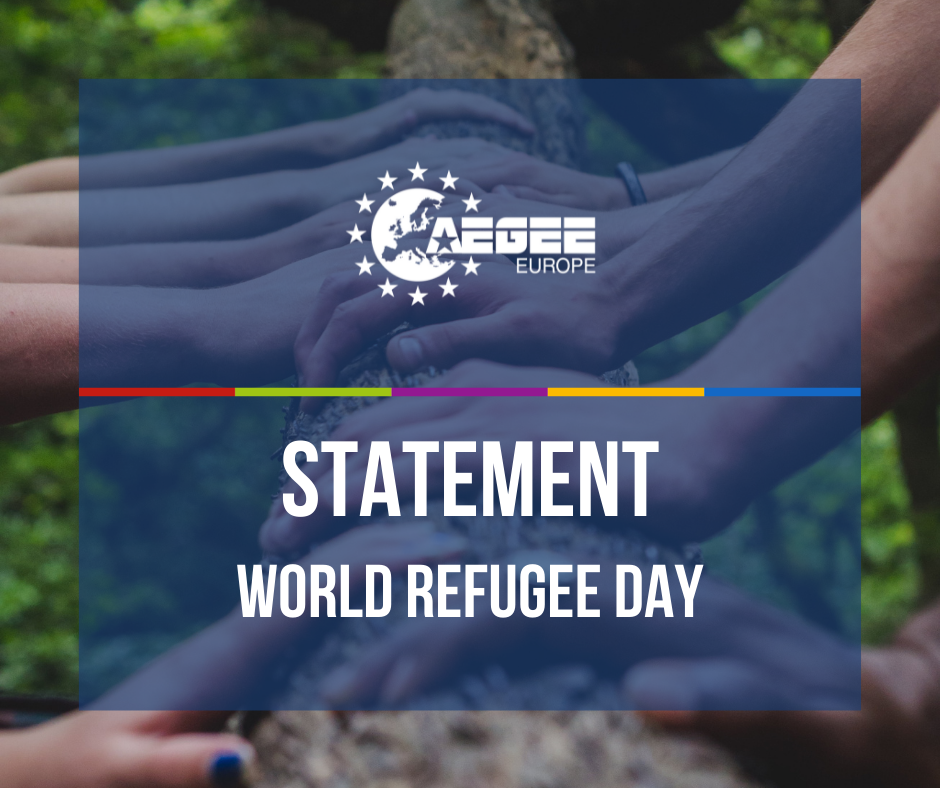The 1951 Convention and the 1967 Protocol Relating to the Status of Refugees defines refugees as people who are unable or unwilling to return to their country of origin owing to a well-founded fear of being persecuted for reasons of race, religion, nationality, membership of a particular social group, or political opinion (1). It was signed into law by 146 countries including all European countries (except San Marino and Andorra) and protects the legal status of refugees and commits signatories to ensuring their safety and basic rights such as the right to family unification and the right to non-refoulement (protection from involuntary return to the country of persecution). The number of forcibly removed people has more than doubled in the past decade rising to around 80 million, 26 million of which are legally recognised as refugees. That difference in number is partly due to the fact that more than 50% of displaced people move within their country of persecution, also referred to as internal displacement (2).
As of 2019, only about 10% of the worlds’ refugees resided within the EU with most asylum seekers originating from Syria, Venezuela and Afghanistan. As a result, refugees constitute a mere 0,6% of the entire EU population (3), a figure that stands in stark contrast to the sometimes peddled notion of an EU overrun by refugees. On the whole, young people are strongly affected by displacement as presently around 40% of all forcibly removed people worldwide are under the age of 18 (4) and youth under the age of 25 make-up roughly two-thirds of that group.
World Refugee Day is a yearly occasion created by the UN in 2001 to honour, celebrate and strengthen refugees around the world. It not only aims at shining a light on the hardships of flight but also aims to raise awareness for the resilience, needs and dreams of refugees. Therefore, the theme of the 2021 World Refugee Day is “together we heal, learn and shine” to mobilize for health care and education of refugees as well as to bring people closer together, build understanding and create environments fit to develop one’s potential (5, 6)
AEGEE was founded on the vision of a borderless Europe and promotes the ideas of democracy, human rights and diversity. We believe that the physical and psychological protection of refugees during and after escape is of crucial importance. It is necessary that their guaranteed rights under the 1951 Convention and the 1967 Protocol Relating to the Status of Refugees are secured at any stage, whether that be while entering a country, applying for asylum or already adapting to life in a new state.
Furthermore, we take a stance against so-called “push backs” in the Mediterranean sea which have been employed by European authorities since the start of the migration crisis to stop refugees from reaching European territories. The ECCHR defines pushbacks as a “set of state measures by which refugees and migrants are forced back over a border, …, without consideration of their individual circumstances and without any possibility to apply for asylum, ….” (9). Push backs are carried out on land by using violence to hinder refugees from entering, or at sea by pulling refugees’ boats into non-European waters and abandoning them. Since this practice puts refugees in life-threatening danger and forces them back into possibly unsafe states, it may run afoul of the 1951 Convention, especially article 33 and constitutes an inhumane practice irreconcilable with basic norms of human decency and violates the right to safety of some of the most vulnerable people.
AEGEE has always been of the conviction that the protection of refugee rights should be of high priority. To realize the guarantees given by the 1951 Convention and the 1967 Protocol Relating to the Status of Refugees we demand:
To the European institutions:
- Revision of the list of 3rd-world countries which are considered to be “Safe Third Countries” due to a possible violation of the non-refoulement clause (10)
- Revision of actions with the countries which are neglecting the provisions included in the Dublin Regulation
To the single individual countries:
- Enhance their participation in the European security programs, instead of providing national, closing solutions and fences, as recommended by the same Frontex Annual Risk Analysis (2016)[31], in its scenario no. 2, a scenario that can be highly improved by more cooperation and interaction between Member states (10)
Refugee rights are human rights and national governments should increase their efforts to secure their fulfilment to the fullest. We, as AEGEEans, stand in solidarity with refugees and forcibly removed people and continue to advocate for a just and inclusive Europe for all.
Sources:
(1) Convention and Protocol Relating to the Status of Refugees art. 1 A (2) (https://www.unhcr.org/3b66c2aa10.html)
(2) https://www.unhcr.org/figures-at-a-glance.html
(3) https://ec.europa.eu/info/strategy/priorities-2019-2024/promoting-our-european-way-life/statistics-migration-europe_en#RefugeesinEurope
(4) https://www.unhcr.org/refugee-statistics/
(5) https://www.unhcr.org/world-refugee-day.html
(6) https://www.globalgiving.org/world-refugee-day/
(7)https://www.thenewhumanitarian.org/opinion/2020/09/30/Afghanistan-EU-Joint-Way-Forward-migration-asylum-seekers
(8) https://helprefugees.org/news/afghanistan-unlawful-deportations/
(9) https://www.ecchr.eu/en/glossary/push-back/
(10) /policy-paper-on-migration/



